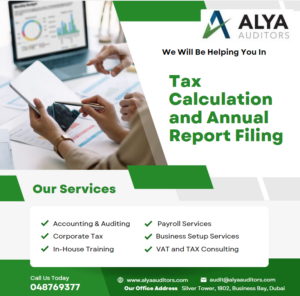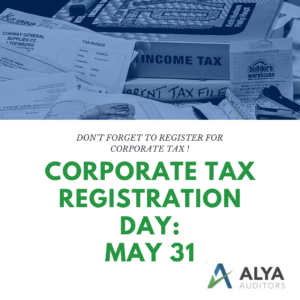
Corporate Tax Registration Deadline Alert
Corporate Tax Registration Deadline Alert If your business license was issued in August or September (any year), make sure to register for Corporate Tax by
Home » Fines for companies in non filing ESR in the UAE
The UAE introduced Economic Substance Regulations to honour the UAE’s commitment as a member of the OECD Inclusive Framework on Base Erosion and Profit Shifting (BEPS), and in response to a review of the UAE tax framework by the EU which resulted in the UAE being included on the EU list of non-cooperative jurisdictions for tax purposes (EU Blacklist). The issuance of the Economic Substance Regulations on 30 April 2019, and the release of Guidance on the application of the Regulations on 11 September 2019, was a requirement for the removal of the UAE from the EU Blacklist on 10 October 2019. In consultation with the OECD and the EU, amendments to the Regulations were made by Cabinet of Ministers Resolution No. (57) of 2020 on 10 August 2020 (the Regulations), and updated Guidance was issued on10 August 2020 (Ministerial Decision No. (100) of 2020 The Regulations ensure that UAE entities that undertake certain activities (Licensees – see Question [5]) are not used to artificially attract profits that are not commensurate with the economic activity undertaken in the UAE.
The Regulations are effective from 1 January 2019, and apply to financial years starting on or after 1 January 2019.
Example 1: A UAE company with 1 January 2019 – 31 December 2019 financial year: First assessable period would be 1 January 2019 – 31 December 2019.
Example 2: A UAE company with 1 April 2019 – 31 March 2020 financial year: First assessable period would be 1 April 2019 – 31 March 2020. No need to comply with the Regulations for the period 1 January 2019 – 31 March 2019.
Example 3: A UAE company with 1 July 2018 – 30 June 2019 financial year: First assessable period would be 1 July 2019 – 30 June 2020. No need to comply with the Regulations for the period 1 July 2018 – 30 June 2019.
The companies in the UAE that fall within the scope of the Economic Substance Regulations (ESR) are required to demonstrate economic presence in line with the level and type of substantial economic activities they carry out. To maintain economic presence the company needs to meet the Economic Substance Test by earning income from Core Income Generating Activities (CIGAs), being directed and managed in the UAE, and having adequate employees, premises and incur expenditure.
However, the big question that hangs in the air now is what will happen if a Licensee fails to meet the Economic Substance Test. The Economic Substance Test is considered as a litmus test for the companies to demonstrate that their business intentions are genuine and they are not conducting any harmful tax practices. Therefore, failing the economic substance test attracts actions and penalties from the relevant regulatory authority.
The mainland and free zone regulatory authorities determine whether or not a company is meeting the Economic Substance based on the following key criteria:
The companies need to conduct CIGAs in relation to the relevant activities they conduct in the UAE. The relevant activities as per the ESR are Banking business, Insurance Business, Investment Fund Management Business, Shipping Business, Lease-Finance Business, Distribution, and Service Centre Business, Headquarters Business, Intellectual Property Business, and Holding Company Business. Each Relevant Activities has a set of CIGAs associated with it and the companies need to demonstrate economic substance in the CIGAs.
In the second test, the companies are assessed to determine if they have held and attended an adequate number of board meetings in the UAE. The companies need to maintain a written minute of the meeting and all the attendees should sign it. A quorum of the meet must be met with all the attendees physically present in the UAE. Finally, the directors need to have the relevant knowledge and expertise to discharge their duties.
In a bid to meet the Economic Substance Test the companies should maintain adequate full-time employees who are qualified enough to manage the CIGAs. The employees must be physically present in the UAE while the activities were carried out.
The companies should have incurred adequate expenditure while carrying out the CIGAs in the UAE. If it is outsourcing the activities the expenditure incurred by the third-party should be adequate to meet the test.
The Licensees need to maintain adequate physical assets in the UAE to carry out the relevant activities. The assets could be the premises that the Licensee used to conduct the activity in the UAE.
The ESR has provision to meet the economic substance test if the Licensee is outsourcing the CIGAs to another entity. In such a case, the Licensee should be able to monitor and control the entity to which the CIGAs have been outsourced.
The Economic Substance Regulations (ESR) were introduced by the UAE to ensure that the economy is in line with the global standards and to curb harmful tax practices. To comply with the ESR, the companies will be tested to ensure they are maintaining adequate economic substance in relation to the relevant activities they carry out in the UAE. Failing to meet the Economic Substance Test will attract penalties and actions such as the exchange of information with the competent authority.
To avoid such penalties the companies need the professional assistance of an audit firm like Alya Auditors has highly qualified Chartered Accountants and business setup consultants who assist the companies in meeting the Economic Substance Test. Alya provides services such as

Corporate Tax Registration Deadline Alert If your business license was issued in August or September (any year), make sure to register for Corporate Tax by

Is it mandatory to register for corporate tax in UAE? All taxable persons are required to register for UAE Corporate Tax and obtain a Corporate Tax

Scope of UAE Corporate Tax: What You Need to Know The upcoming UAE Corporate Tax (CT) will impact a broad spectrum of businesses and individuals.

Navigating Crypto Auditing in the UAE: Ensuring Compliance and Security in the Digital Age Crypto auditing in the UAE is becoming increasingly critical as the
Truly, let us know what service you are looking for and hence we can get back to you with more details.
Silver Tower, Business Bay. PO Box: 41102, Dubai, UAE.
Sharjah Airport Free Zone PO Box: 120403 Sharjah, UAE.
+971 48769377
+971 52 9750690 , +971 50 522 1035
Mon – Fri : 8:30 AM – 6 PM
Saturday – 9 AM – 5 PM
Sunday – Closed
© Alya Auditors 2022 All Rights Reserved